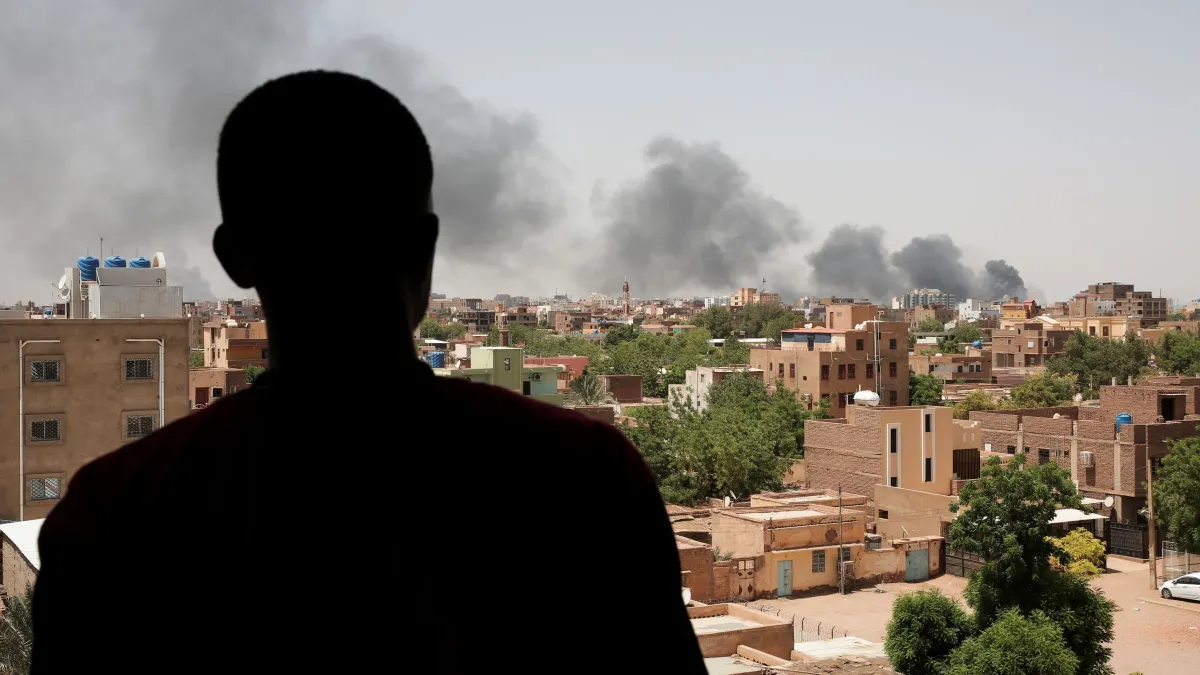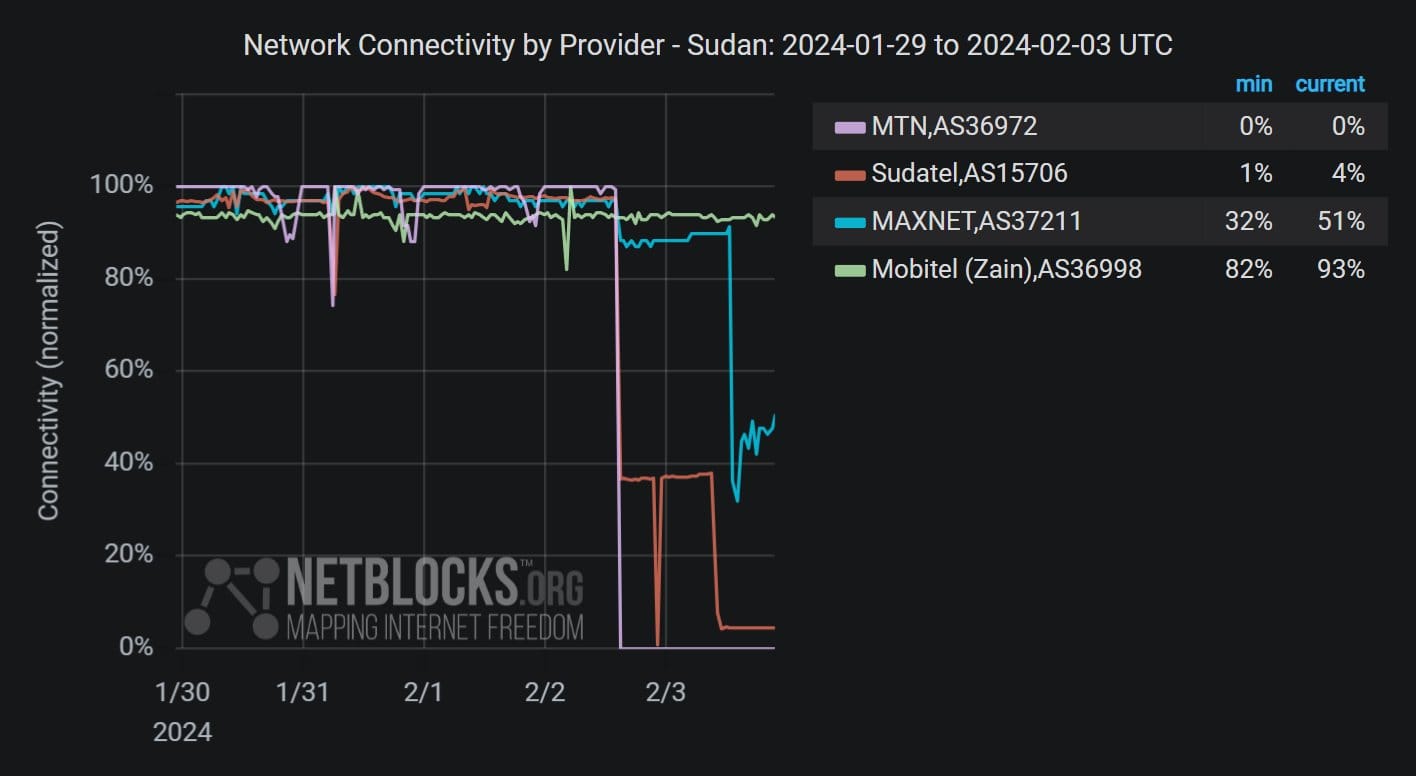Sudan's latest internet outage is escalating tension
There is no indication who is responsible, and the conflict seems to now be escalating into other African countries

For a couple of days and still counting, internet and communications networks have been down in Sudan, a North African nation currently engulfed in politically inspired conflicts.
Yet the origin of the disruption remains murky. Accusations for who might be responsible are going back and forth between the incumbent Sudanese leadership and the Rapid Support Forces (RSF), a government-owned paramilitary outfit.
In a civil war that has lasted up to ten months, these two forces have been fighting each other in what can be described as a tussle for upper-handedness. The situation has escalated into a major humanitarian crisis, one that has displaced millions and caught the attention of the United Nations.
In the fresh fallout, the RFS, which controls areas where major telecoms infrastructure is located, allegedly disrupted the networks of state-owned Sudani and South Africa-owned MTN Sudan as an act of protest against months-long poor communication.
The RSF however refuses responsible for the blackout, rather pointing in the direction of its most formidable adversary, the Sudanese army. An official from the group blamed the outage on ongoing military operations, accusing the army of severing digital comms in some parts of Darfur, Kordofan, Khartoum, and Al-Jazirah.
According to Digital Rights Lab, an independent and non-political non-profit Sudanese organization focusing on enhancing the local online space, some sources say the RSF took over some internet service providers' data centers in Khartoum, the nation's capital city.
Internet freedom watchdog NetBlocks has reported a fresh collapse of internet connectivity, "with leading mobile operator Zain now also falling largely offline." That means the situation has affected the major telcos in the war-torn country, putting around 14 million internet users in the dark.

In a statement shared on Meta (formerly Facebook), Zain admitted it is currently "working under very difficult, harsh, and dangerous circumstances", adding that the current blackout is due to circumstances beyond its control.
As state-aligned media blame the RSF, a hacktivist group commonly known as Anonymous Sudan has taken matters into their own hands by cracking down on other jurisdictions it believes share affiliation with the paramilitary group.
Anonymous Sudan has cyber-attacked Djibouti Telecom, a state-owned, leading mobile network operator in Djibouti, a Horn of Africa nation. Because of the country's supposed ties with the RSF, the group has significantly disrupted the telco's connectivity networks, knocking its subscribers offline.
But, that is not all. Anonymous Sudan has, for the same reason, taken the grudge to Uganda and made state-owned Uganda Telecom and MTN's local unit suffer disruptions. However reports say Uganda Telecom has not been quite an active internet service provider for several years.
April last year, following directions from the government, MTN Sudan briefly suspended its internet services to quell armed conflicts between the RSF and the state army, one which led to the loss of hundreds of Sudanese lives.
In 2023, Sudan lost $12.4 million to 212 hours of web censorship, affecting 4.8 million people in the country. Now it has joined the count of African countries that have restricted access since the beginning of this year, including Comoros and Senegal.






